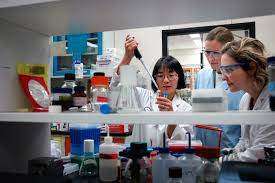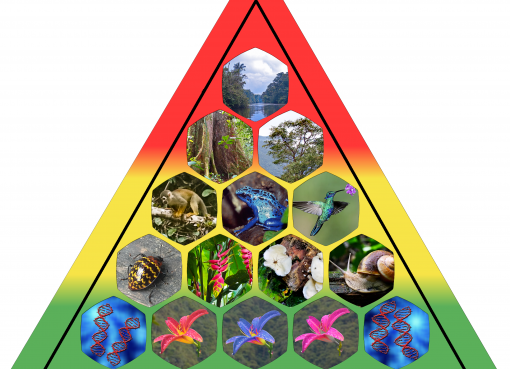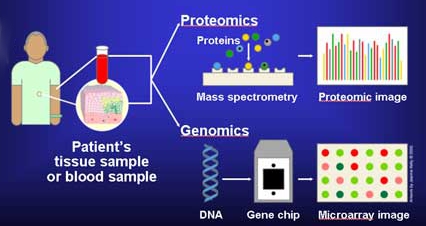View Point 1:
A kind of partnership of such a form is like a double-edged sword, for it carries with it the potential of an exciting future as much as the prospect of misappropriation and malevolence. One obvious concern is that these ties will bias research, both the kind of work that is done and the way it is reported. Researchers might undertake studies on the basis of whether they can get industry funding, and not whether the studies are scientifically important.
But considering the benefits and benevolent atmosphere in the long-standing dry spells of job creation for biotechnology aspirants and hopeless career shifts of enthusiastic bright minds of a half-cooked biotechnology sector for a seemingly long decade, it would be an easy choice to absolutely agree that building a strong industry-academia relationship is crucial for ensuring better career prospects in biotechnology for posterity.
The field of biotechnology is constantly evolving, and close collaboration between universities and the industry can help bridge the gap between academic knowledge and practical skills required in the workplace. Here are a few reasons why a strong industry-academia relationship is important:
1. Knowledge exchange and collaboration
2. Bridging the gap between research and commercialization
3. Applied research and development
4. Workforce development
5. Economic growth and job creation
6. Regulatory and ethical considerations
Among the significant benefits of such an association are the formation of the Foundation for Food and Agriculture Research (FRAR) in 2014, the formation of the University-Industry Demonstration Partnership (UIDP) and advances in the biomedical sector owing to strong collaboration with pharmaceutical companies. In India, especially in the North-East, which is the hotbed of biodiversity, we need to start such initiatives for the benefit of both the players and the overall development of the nation.
Arnab Kumar Chakraborty
Project Coordinator, NECTAR
View Point 2:
Industry-Academia collaborations are essential for developing research and a qualified workforce. This type of collaboration benefits both the parties as the industry easily can recruit skilled workers with specialized expertise and the universities get a chance to work on pertinent technologies and problems. In this type of collaborations, academic and scientific research results, and industrial practitioner findings and experiences are produced. Both types of knowledge should be gathered, codified, and disseminated efficiently and effectively
India’s Biotechnology industry, which is basically categorized into Bio-Pharmaceuticals, Bio-agriculture, Bio-IT and Bio-Services, is growing rapidly and soaring towards $300 Bn bio-economy. India is placed among the top 12 destinations for biotechnology worldwide and is the 3rd largest destination for biotechnology in Asia Pacific. In the past 10 years, it could be seen that the Indian Bio-economy has grown manifold in value and COVID-19 gave the industry a much needed push. In the year 2002, it was estimated that the industry had crossed $80.12 Bn with a 14% increase compared to the previous year. India is one of the leading destinations for bio-innovation and bio-manufacturing and has been categorized has a sunrise sector in the India’s vision of reaching $5Tn Economy by 2024.
Industry academia collaborations will impart training to the students and researchers on soft skills to cope up with the industry. It will combine didactical approaches and existing concepts with emerging topics of the industry and ensure smooth communication and co-ordination between academia and industry.
Considering the above scenario, it is better to have industry-academia collaboration so that it will create a lot of career opportunities for the biotech graduates, as the career options in public sector is minimal. Hence, to ensure better career prospects in biotechnology, it is necessary for the universities to build a strong industry – academia relationship.
Dr. Rezwan Hussain
RA Scitech Solutions
Guwahati-781028
Mobile No: 9864264209
View Point 3:
Industry academia linkage
Science, technology, and innovations are parts and parcel of development. Like any other sectors, biotechnology is also very important in overall sustainability of human’s life, be it for food, clothing, pharmaceuticals, etc. Not only human life, but biological findings also often help other sectors as well like waste management, textiles industry, cosmetics etc. Without biological interventions, it will be difficult to imagine a future considering climate change resilience and sustainable development. Biotech graduate/post graduate students are specially trained in the field of new technologies in biology along with traditional life science subjects. This helps them to work on developing/delivering research/innovations/technologies while keeping their life science training in core. Their training also makes them more flexible to work on many sectors. Thus, a person trained in biotechnology is an important asset to the field. However, due to our own traditional mindset, we, even though highly skilled, opt for a certain type of academic job. Moreover, the alternate job options are not lucrative in the long run, aggravating the situation. So even though skilled, biotech people must work on temporary projects in different Govt. institutes. In case of other technology areas, there is vast investment in the private sector, where employers are willing to employ freshly passed/experienced people according to their skill level. As the availability of Govt. job will always be limited, we must train our young students to look for private sector jobs and climb the career ladder by improving the technical skills just like any corporate person. With the emergence of Data Science, Artificial Intelligence and Entrepreneurship, we, the biotechnologies, have an excellent opportunity for upgrading our skills according to the demand and cater to a variety of sectors like Agriculture, Food Technology, Computational Biology, Climate Change etc. But this change of mindset will need time, and the College/University will have to play the most crucial role. The institutions should focus on enabling students with current technological needs along with the basic research subjects. They should also aim towards nurturing the innovative/ entrepreneurship mind sets and prepare them to match the skill level needed to sustain in the market. This eventually will build among the students a “job-providing” entrepreneurial temperament instead of the “job seeking” one. Rise of entrepreneurship will give rise to more jobs, thus creating positive feedback for continuous generation of respectable employment. This can be manifested by industrial visits/internships/trainings etc., which can be easily done by the institutes/universities with the help of an industry partner. This industry-academia partnership will be beneficial in several ways such as:
- The early exposer to the industrial sector will encourage students towards a more market-friendly mindset instead of pure academic
- Exposure with the industry will help students assess their current skill profile and update it according to the market need.
- This exposure will help in building entrepreneurial/problem-solving attitude and make them more suitable for the current job market, thus ensuring a good pay
- Many companies/industries have Corporate Social Responsibility funds (CSR), which can be beneficial in the research programme of the institutions.
Thus, we must emphasize on building a strong linkage between industry and academia in the biotech sector to sensitize our young students to new occupational options, instead of exposing them to the same frustrating loops of academia repeatedly producing more of its kind.
Name: Ms. Rituparna Das
Designation: Junior Scientific officer
Organization: Assam Science Technology and Environment Council, Science Technology and Climate Change Department, Government of Assam




